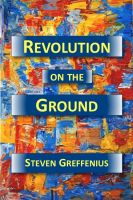Tags
I wrote down some thoughts recently about what actually divides us in matters of political philosophy. The thoughts were not original, but as often happens for general questions, the inquiry leads to some interesting distinctions and analysis. That’s true of this general question, where so much analysis of divisions assumes the validity of a left-center-right spectrum in political thought.
How long will it take us to discard these staples of political discussion? I expect they’ll stay around long after the next revolution begins, but if they survive that struggle, the categories won’t mean the same. The coming conflicts will force changes of meaning in our standard political vocabulary.
In my notes I tried to state the key issue that divides us in a single question: what motivates people who hold and want to keep power? I realized that two other questions bear on the same problem: 1) what are the results of government’s actions and policies, and 2) when you compare government’s actions with our written constitution, what conclusions do you reach?
Political scientists and historians love to quote Acton’s phrase, “Power corrupts.” They tag on the second part, “…and absolute power corrupts absolutely,” without explaining how the second part adds anything to the point they want to make. I suppose if you want to make a point about tyranny and a tyrant’s character, the whole saying carries some extra meaning. If you simply want to make a point about power, the first two words do the job.
The dividing line, as Ronald Reagan said in A Time for Choosing, is not between the socialist left and the conservative or capitalist right. These terms never translated well as they crossed the Atlantic, and they certainly do not describe adequately what has occurred in American politics over the last couple generations. The dividing line, again referring to Reagan, is the choice between maximum freedom consistent with order, and the totalitarian ant-heap.
Update
Here is the full quotation from Ronald Reagan:
Here are the thoughts I mentioned in this post’s first sentence:
No matter how much we analyze differences between left and right, the question that divides us now is: what motivates people who hold power? Let’s not listen to what they say motivates them. Let’s ask: what do government’s actions say about what motivates people who hold power?
The last question has a contentious issue built into it. People disagree about who actually holds power. Hint: it is not the president. When people who actually hold state power say they desire the best for all of us, they are not telling the truth!
Related books

National Security and Double Government, by Michael J. Glennon

Revolution on the Ground, by Steven Greffenius

The Last Jeffersonian, by Steven Greffenius
Related post
Quotatations
These quotations are about revolution, and about citizens’ relationship to government. Remember what happened when a revolutionary movement for change in the 1960s turned violent. Let’s make the second try work.
“Those who make peaceful revolution impossible will make violent revolution inevitable.” ~ JFK
“A revolution is coming: A revolution which will be peaceful if we are wise enough; compassionate if we care enough; successful if we are fortunate enough; but a revolution which is coming whether we will it or not. We can affect its character, we cannot alter its inevitability.” ~ JFK
”We are not afraid to entrust the American people with unpleasant facts… For a nation that is afraid to let its people judge the truth and falsehood in an open market is a nation that is afraid of its people.” ~ JFK
“When the people fear the government, there is Tyranny; when the government fears the people, there is liberty.” ~ Thomas Jefferson

